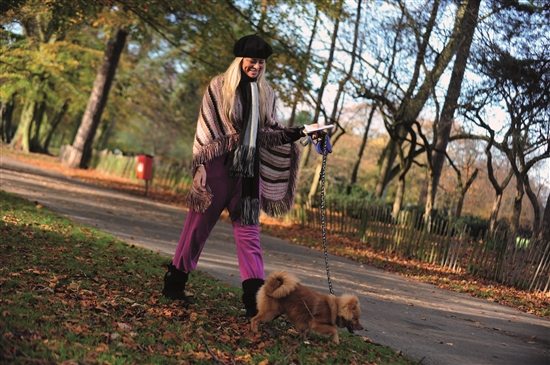Written by Debbie, one of our Living with cancer editors.
There’s a brisk chill in the morning air, a kaleidoscope of leaves on the ground and the evenings are gradually shuffling in. Some of us here in the office (myself included) are still clinging stubbornly to our summer sandals. Others have relinquished and embraced their autumn boots with gusto. At the very least, chances are your diary has cleared of BBQs, weddings, festivals and fairs.
Many people love autumn – the colours, the nip in the air and the chance to wrap up warm and hibernate in their homes. But others may greet the cooler weather, diminishing sunlight and inevitable countdown to winter with dread.
For people affected by cancer, particularly people who live alone, it is especially important you don’t let the change of season get you down. In fact, a change in season can often be a good time to assess your current lifestyle and instil some new healthier routines.
Try out these tips to keep the end-of-summer blues at bay:
Don’t hide away. The end of summer shouldn’t mean the end of your social calendar. There may be fewer events organised and the weather may not be as inviting, but it is important to stay in touch with family and friends. If left unchecked, feelings of loneliness and isolation can quickly lead to feelings of anxiety and depression.
If you are finding the change of season difficult, talk to someone about it. You can visit our online community to connect with other people affected by cancer or call the Macmillan Support Line.
Being physically active is a natural mood-booster. It has also been shown to reduce symptoms and side effects, aid recovery after cancer treatment and, in some studies, reduce the chances of cancer coming back. And there is no reason why we can’t enjoy physical activity outdoors once summer is over. Autumn can be one of the most beautiful times of year and the cooler weather can make activity more pleasant.
Walking for Health, run by Macmillan and the Ramblers, lead organised walks throughout England. Paths for All in Scotland and Let’s Walk Cymru in Wales run similar schemes. In Northern Ireland, you can contact the Physical Activity Co-ordinator in your local health trust to find out about health walks.
Eating well will help you maintain or regain your strength during and after cancer treatment. Though it’s tempting to indulge in hearty, comfort foods in the colder weather, a healthy balanced diet will give you more energy and increase your sense of well-being. It can also help reduce the risk of new cancers, heart disease, stroke and diabetes.
Whether it’s a dinner with friends, a day out or a longer holiday, having something to look forward to can help to motivate us and keep us feeling positive. If you want to do something a little different, check out the Macmillan events happening near you this autumn. There is everything from challenge events to arts exhibitions. And don’t forget it’s the World’s Biggest Coffee Morning this Friday 26th September. So make sure you find a slice of cake to enjoy near you.
Our booklet How are you feeling? discusses more ways to manage difficult feelings when you have been diagnosed with cancer.
The Macmillan team is here to help. Our cancer support specialists can answer your questions, offer support, or simply listen if you need a chat. Call us free on 0808 808 00 00.
Comments? Feel free to add them below (you need to be logged in – if you still can't see the comment box, click on this blog's title at the top).
Keep in touch Follow Macmillan’s cancer information team on Twitter @mac_cancerinfo
Whatever cancer throws your way, we’re right there with you.
We’re here to provide physical, financial and emotional support.
© Macmillan Cancer Support 2024 © Macmillan Cancer Support, registered charity in England and Wales (261017), Scotland (SC039907) and the Isle of Man (604). Also operating in Northern Ireland. A company limited by guarantee, registered in England and Wales company number 2400969. Isle of Man company number 4694F. Registered office: 89 Albert Embankment, London SE1 7UQ. VAT no: 668265007